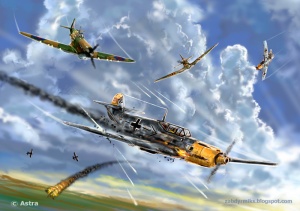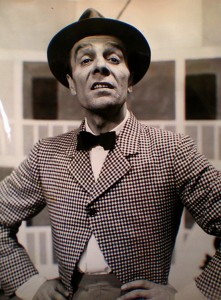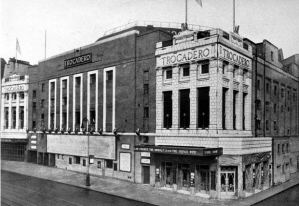
It was a sunny Monday afternoon, and Faith Edwards was knitting in her front room. Seated in a wooden rocking chair with a giant yellow cushion on the seat, she flashed the steel needles rapidly while drawing from a ball of blue wool in her lap. Patches, her Calico cat, was curled up on a wooden chest in front of the window, warming herself in the sunshine and watching passersby outside. Bonnie, her son’s black-and-white Collie dog, crouched on the front lawn waiting for her master to return from school.
Suddenly, Bonnie barked and ran to the gate to greet young Tommy. The boy patted Bonnie and latched the gate behind him. The dog chased after him as he entered the house via the back door for which he had a key. After grabbing a glass of juice and giving the dog a treat, he found his mother in the front room.
“What are you knitting, mum?”
“This will be a pair of socks, son.”
“Great, I need some new socks–mine all have holes in them.”
“They’re not for you Tommy. They’re for a charity.”
“Oh! What charity?”
“They’re for the shoeless natives of Antigua.”
“That’s weird, mum. If they’re shoeless why do they need socks? Do they run around on the beach wearing just socks?”
“No, Tommy. We also contribute whatever we can to buy shoes for them.”
“Wow, mum! Grandma should have named you ‘Charity’. Like they say, ‘you have faith, hope and charity, but the greatest of these is charity’.”
“Be nice son. You have to be ready to give to people in need. And you have to learn to take care of yourself. I’ll show you how to darn the holes in your socks.”
***
A couple of days later, the front door bell rang with the sound of church bells (a chime chosen by Faith’s husband Charles, who was a bell ringer in the local Anglican Church). Standing on the doorstep were a tall man in a grey suit, and a woman in a police uniform. Both showed their identification cards, and the man made the introductions:
“Good morning ma’am. I’m Detective Inspector Nigel Johnson, from Scotland Yard, and this is Constable Kathleen Connor from your local CID. We’re investigating some narcotics smuggling linked to local gang activity. We have a few questions, as you may be able to help us with our inquiry.”
“Certainly, come inside. But we don’t have any major criminals in this town. The last celebrity crook from Redhill was the fellow who organized the Great Train Robbery about forty years ago.”
“Well things may have taken a turn for the worse Mrs. Edwards. Do you know a fellow named Juan Gonzalez?”
“I don’t think I’ve ever met anybody with that name. How am I supposed to know him?”
“Well, we have a check for five pounds, signed by you and made out to Juan Gonzalez.”
“Oh, now I remember. That was a contribution to a church charity, and they told us to make out the checks to Mr. Gonzalez.”
“In the memo column it says, “For AA”. What is that, Alcoholics Anonymous?”
“No, it’s Antigua Aid. The money buys shoes for the shoeless natives.”
“What church organized that charity?”
“It’s called the Unitarian Universalist Society.”
“What denomination is that?”
“It’s not any denomination, its ecumenical. They take people of all faiths: Christian, Jewish, Muslim, Hindu, Buddhist, etc. It’s more like a social club than a church. I used to go to Saint John’s with my husband, because he’s a bell ringer there. But I didn’t like some of the policies of their
Women’s Institute. So several of us left and joined the new church. I found out about it from my friend Rachel Bierman. She is Jewish but all her friends are Christians. So she felt more comfortable in the Universalist church.”
“Well, Mrs. Edwards, the new church may not be as charitable or as innocent as you believe it to be. The Customs authority detained Senor Gonzalez at Gatwick Airport for smuggling some hashish from Antigua. Your charitable contributions seem to have partially financed this operation.”
“What happened to the socks?”
“Socks…?”
“Yes. We knitted socks for the shoeless natives of Antigua.”
“Really? The gang probably just dumped them. Though, come to think of it, some of the boxes of hashish were labeled “Socks.” But customs X-Rayed the boxes and saw tablets and vials inside. So they opened the boxes as they thought they might contain opiates—which are a major concern right now.”
“Are these gangsters dangerous?”
“Yes. Though I don’t think they will harm you as you’re not really a threat to them. However, we’ll have the local police watch your house and patrol the neighborhood regularly. Here’s my card. I’m staying locally for the next couple of weeks. Give me a call if these thugs bother you, or if you think of anything that might be helpful.”
***
That afternoon started out as usual. Faith was knitting again, but this time she was making smaller socks—the right size for Tommy. The cat was curled up in front of the window, and Bonnie the Collie was waiting for her master on the front lawn. Then Faith heard a loud ‘Rat-tat-tat-tat’ which she later learned was gunfire from an automatic rifle. The front window collapsed, and Faith dove for the floor, crawling away from the window. The cat scooted towards the back room. Just before she dropped to the floor, Faith glimpsed a black vehicle with tinted windows speeding away from her house.
Trembling with fear, Faith pulled out her smartphone and dialed the number the Scotland Yard detective had given her. He hit her with a barrage of questions: “Is anyone hurt? Did you get the license number of the black SUV? Did you call 999? Did your boy get home from school yet?” After getting a series of “No” replies, Detective Johnson said, “Don’t worry about it. We’ll take it from here. We’ll be there in about five minutes.”
A few minutes later, Johnson arrived in a squad car, with Constable Connor driving. Also, there was a second police car with two uniformed officers in it, plus a van with two criminal investigation technicians– who started to track all the bullets littered on the lawn. When Faith ventured out of the house, she was horrified to find that the dog was dead—its head had been blown away by the intense gunfire.
The two detectives went to their car to make some phone calls. They wanted to track down the SUV by checking local security cameras.
Faith started to feel very lonely. She and her husband had always been rather independent. They attended different churches, and at election time they stuck up posters for opposing political parties. But now she wished she had Charles’s shoulder to cry on. He worked in the City. But this week, he was attending an economics conference in Germany. She phoned his hotel in Frankfurt, but he was not in his room. So she left a long message explaining everything that had happened. The final two words were, “…Never Again.”







